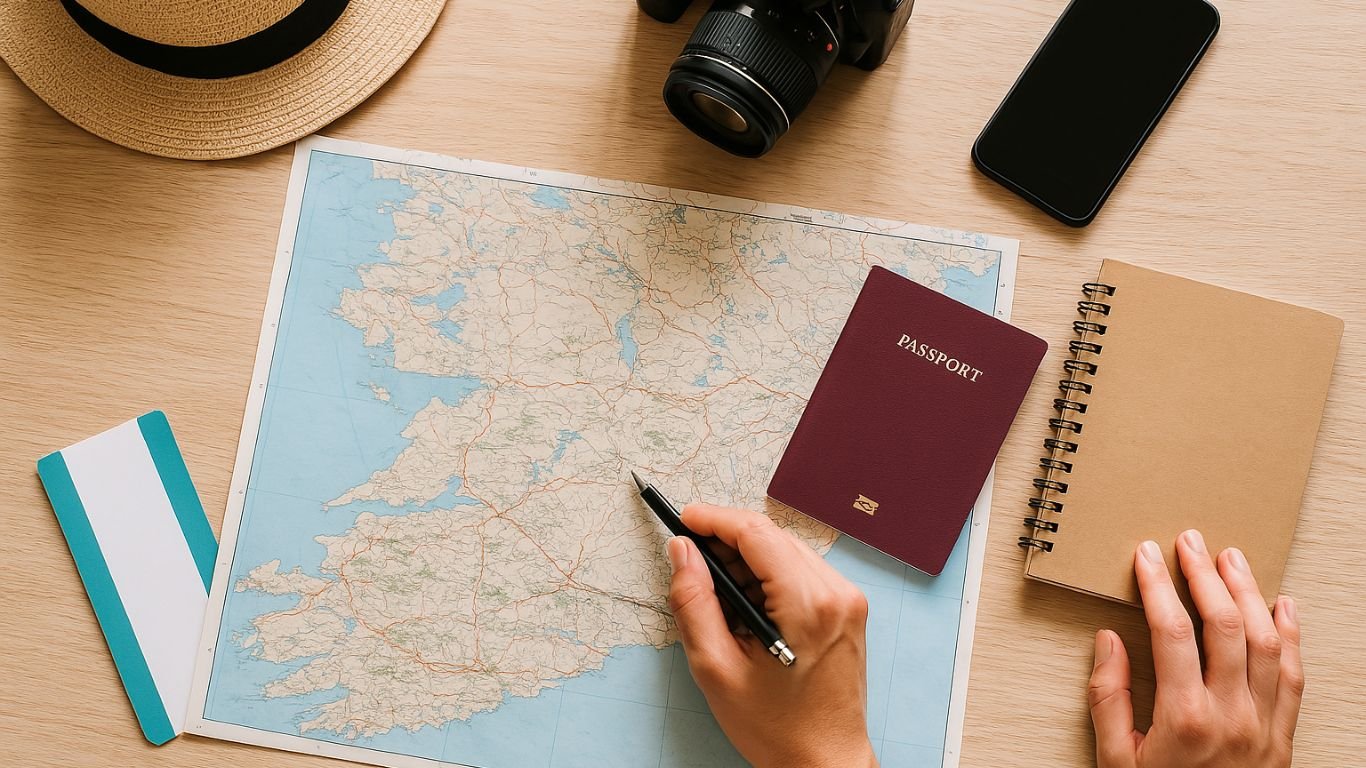Traveling is one of life’s greatest pleasures, but the process of booking flights and accommodation can often feel overwhelming. With so many options, platforms, and deals available, how do you ensure you’re getting the best value for your money? Whether you’re planning a weekend getaway or a month-long adventure, mastering the art of booking flights and accommodation can save you hundreds—if not thousands—of dollars.
This guide will walk you through everything you need to know to secure the best travel deals. From leveraging flight comparison tools to finding hidden gems in accommodation options, we’ll cover actionable strategies, insider tips, and personal insights to make your travel planning seamless and cost-effective.
Table of Contents
Finding the Best Flight Deals
Utilizing Flight Comparison Websites
Flight comparison websites like Skyscanner, Kayak, and Google Flights are indispensable tools for travelers. These platforms aggregate data from multiple airlines and travel agencies, allowing you to compare prices, routes, and schedules in one place. For example, Skyscanner’s “Everywhere” feature lets you explore the cheapest destinations from your departure city, perfect for spontaneous travelers.
However, don’t rely solely on one platform. Cross-checking prices across multiple sites ensures you’re not missing out on better deals. Additionally, some airlines, like Southwest or Ryanair, often exclude their fares from these aggregators, so it’s worth checking their websites directly.
Being Flexible with Travel Dates
Flexibility is your best friend when booking flights. Shifting your departure or return date by even a day can result in significant savings. Midweek flights (Tuesday and Wednesday) are typically cheaper than weekend flights, as demand is lower. Tools like Google Flights’ date grid or Hopper’s price prediction feature can help you identify the cheapest days to fly.
If your schedule allows, consider traveling during off-peak seasons. For instance, flying to Europe in late fall or early spring can save you up to 30% compared to summer prices.
Considering Alternate Airports
Major airports often come with higher ticket prices due to demand and operational costs. Exploring flights from nearby regional airports can lead to substantial savings. For example, instead of flying into New York’s JFK, consider Newark or LaGuardia. Similarly, in Europe, flying into smaller airports like London Stansted instead of Heathrow can be more budget-friendly.
Setting Price Alerts
Price fluctuations are common in the airline industry. Setting up price alerts on platforms like Kayak or Google Flights ensures you’re notified when fares drop. This strategy is particularly useful if you’re planning well in advance, as prices tend to fluctuate over time.
Exploring Budget Airlines
Budget airlines like Ryanair, EasyJet, and Spirit Airlines offer no-frills travel at a fraction of the cost of traditional carriers. While you may have to pay extra for amenities like checked baggage or in-flight meals, the base fare can be incredibly affordable. Just be sure to read the fine print to avoid unexpected fees.
Clearing Browser Cookies and Using Incognito Mode
Some travelers swear by the practice of clearing browser cookies or using incognito mode to avoid dynamic pricing. While the effectiveness of this tactic is debated, it doesn’t hurt to try. Airlines and booking platforms may track your searches and increase prices if they detect repeated interest in a particular route.

Securing Affordable Accommodation
Comparing Hotel Booking Platforms
Just as with flights, comparing prices across multiple hotel booking platforms is crucial. Websites like Booking.com, Expedia, and Hotels.com often have exclusive deals and discounts. Additionally, platforms like Trivago aggregate prices from various sites, making it easier to find the best rate.
Don’t forget to check the hotel’s official website. Many hotels offer price-match guarantees or exclusive perks like free breakfast or room upgrades for direct bookings.
Considering Alternative Accommodation Options
Hotels aren’t your only option. Platforms like Airbnb, Vrbo, and Hostelworld offer a range of alternatives, from private apartments to shared dormitories. Airbnb, for example, is ideal for travelers seeking a home-like experience, while hostels are perfect for budget-conscious solo travelers.
When booking alternative accommodations, pay attention to location, amenities, and cancellation policies. Reading the fine print can save you from unpleasant surprises.
Reading Reviews and Ratings
Reviews and ratings on platforms like TripAdvisor or Google Reviews provide valuable insights into the quality of accommodations. Look for recent reviews, as they reflect the current state of the property. Pay attention to recurring themes in reviews, such as cleanliness, customer service, or noise levels.
Looking for Deals and Discounts
Many booking platforms offer discounts for first-time users, loyalty program members, or those booking through mobile apps. Additionally, signing up for newsletters can give you access to exclusive deals and promo codes. Don’t hesitate to negotiate directly with hotels, especially if you’re booking a longer stay.
Booking During Off-Peak Seasons
Just as with flights, booking accommodation during off-peak seasons can lead to significant savings. For example, beach resorts in the Caribbean are often cheaper during hurricane season, while ski lodges offer discounted rates in the summer.
Direct Hotel Bookings
While third-party platforms are convenient, booking directly with the hotel can sometimes yield better rates or perks. Many hotels offer price-match guarantees, ensuring you get the best deal. Additionally, direct bookings often come with more flexible cancellation policies.

Combining Flights and Accommodation for Package Deals
Understanding Package Deal Benefits
Package deals, which bundle flights and accommodation, can offer substantial savings. Travel agencies and platforms like Expedia or Priceline often negotiate bulk rates with airlines and hotels, passing the savings on to you. Additionally, package deals simplify the booking process, saving you time and effort.
Using Travel Agency Websites
Travel agency websites like Trailblazer Tours or MyHubble Money specialize in curated travel packages. These platforms often include added perks like airport transfers, guided tours, or meal plans. While they may not always be the cheapest option, the convenience and added value can make them worthwhile.
Customizing Package Deals
Many platforms allow you to customize package deals to suit your preferences. For example, you can choose a budget airline paired with a luxury hotel or opt for a mid-range option that balances cost and comfort. Customization ensures you get the best value for your specific needs.
Tips for Saving Even More
Utilizing Loyalty Programs and Rewards
Frequent flyer programs and hotel loyalty programs can lead to significant savings over time. Accumulating points through credit card spending or repeat bookings can result in free flights, room upgrades, or exclusive discounts.
Traveling During Shoulder Seasons
Shoulder seasons—the periods between peak and off-peak seasons—offer a sweet spot of good weather and lower prices. For example, visiting Japan in late spring or early autumn avoids the crowds of cherry blossom season while still offering pleasant weather.
Booking in Advance vs. Last Minute
While booking in advance is generally advisable for securing the best rates, last-minute deals can sometimes yield unexpected savings. Airlines and hotels often slash prices to fill empty seats or rooms. However, this strategy is best suited for flexible travelers.
Understanding Hidden Fees and Taxes
Hidden fees, such as resort fees, baggage fees, or service charges, can quickly add up. Always read the fine print and factor these costs into your budget. Websites like Airline Fees provide detailed breakdowns of additional charges by airline.

Essential Booking Considerations
Reading Terms and Conditions
Terms and conditions outline important details like cancellation policies, refund eligibility, and change fees. Understanding these terms can save you from costly mistakes. For example, non-refundable bookings are often cheaper but come with strict restrictions.
Securing Travel Insurance
Travel insurance protects you against unforeseen events like flight cancellations, medical emergencies, or lost luggage. While it adds to the upfront cost, it can save you significant money and stress in the long run.
Confirming Booking Details
Before finalizing your booking, double-check all details, including dates, times, and passenger names. A simple typo can result in costly changes or even denied boarding.
FAQ
1. How far in advance should I book flights and accommodation?
For international travel, booking 3-6 months in advance is ideal. For domestic trips, 1-3 months is usually sufficient.
2. Are budget airlines safe?
Yes, budget airlines adhere to the same safety standards as traditional carriers. However, they often charge extra for amenities, so read the fine print.
3. Can I negotiate hotel prices?
Yes, especially for longer stays or during off-peak seasons. Contact the hotel directly to inquire about discounts.
4. What’s the best way to find last-minute deals?
Sign up for newsletters from airlines and booking platforms, or use apps like HotelTonight for last-minute accommodation deals.
5. Is travel insurance worth it?
Absolutely. It provides peace of mind and financial protection against unforeseen events.
By following these strategies and tips, you’ll be well-equipped to book flights and accommodation like a pro. Happy travels!

